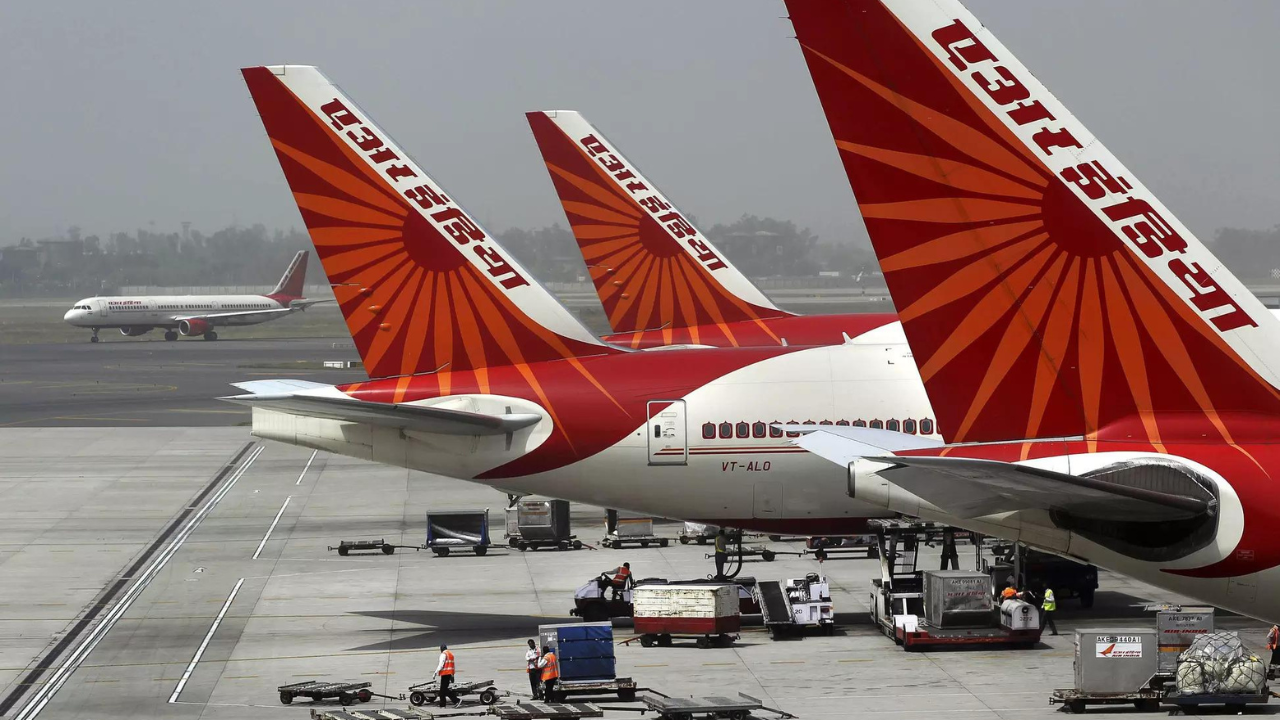NEW DELHI: Air India can conditionally resume simulator training for Airbus and Boeing pilots at its Hyderabad and Mumbai centres, respectively. Last last month spot checks by the Directorate General of Civil Aviation (DGCA) had revealed some deficiencies at these two aviation training organisations (ATO) following which Air India was asked to stop using them. This had sent AI plans to train pilots in a tizzy as the airline is all set to get dozens of planes over the next few months.
In a major relief to the Tata Group airline on this issue, a senior DGCA official said on Thursday: “A conditional approval has been given for 30 days after the deficiencies were rectified. An internal audit is to be conducted within the 30-day period, and after the review, the findings are to be shared with us.”
Had the restrictions on the Hyderabad and Mumbai ATOs lasted any longer, AI would have had to take the more expensive route of sending it’s Airbus and Boeing pilots abroad for training. The airline’s top officials heaved a sigh of relief after the regulatory reprieve.
AI sources said: “Hyderabad ATO has begun training Airbus pilots. Mumbai ATO will do so for Boeing pilots as soon as the next batch are ready.”
Apart from training pilots, sims are also needed for conducting regular checks of pilot skills. All possible scenarios of things going wrong are simulated at the sims by highly experienced examiners to see how pilots react to them and whether they need any refresher training to handle the same if the response is not what it should have been.
The DGCA action on AI sims had come after spot checks had found deficiencies like: Quality manual not being present and preventive maintenance tasks being dispensed with selectively without framing standard operating procedures as required.
The regulator had them made it clear to AI that training cannot resume at Mumbai ATOs till the same are rectified.
AI has big pilot training facilities in Mumbai and Hyderabad. The ATO trains ab-initio pilots, does type rating and recurrent training for proficiency every six months as per the laid down regulations. This ensures that pilot proficiency is maintained upto required standard which is the norm.
In a major relief to the Tata Group airline on this issue, a senior DGCA official said on Thursday: “A conditional approval has been given for 30 days after the deficiencies were rectified. An internal audit is to be conducted within the 30-day period, and after the review, the findings are to be shared with us.”
Had the restrictions on the Hyderabad and Mumbai ATOs lasted any longer, AI would have had to take the more expensive route of sending it’s Airbus and Boeing pilots abroad for training. The airline’s top officials heaved a sigh of relief after the regulatory reprieve.
AI sources said: “Hyderabad ATO has begun training Airbus pilots. Mumbai ATO will do so for Boeing pilots as soon as the next batch are ready.”
Apart from training pilots, sims are also needed for conducting regular checks of pilot skills. All possible scenarios of things going wrong are simulated at the sims by highly experienced examiners to see how pilots react to them and whether they need any refresher training to handle the same if the response is not what it should have been.
The DGCA action on AI sims had come after spot checks had found deficiencies like: Quality manual not being present and preventive maintenance tasks being dispensed with selectively without framing standard operating procedures as required.
The regulator had them made it clear to AI that training cannot resume at Mumbai ATOs till the same are rectified.
AI has big pilot training facilities in Mumbai and Hyderabad. The ATO trains ab-initio pilots, does type rating and recurrent training for proficiency every six months as per the laid down regulations. This ensures that pilot proficiency is maintained upto required standard which is the norm.
